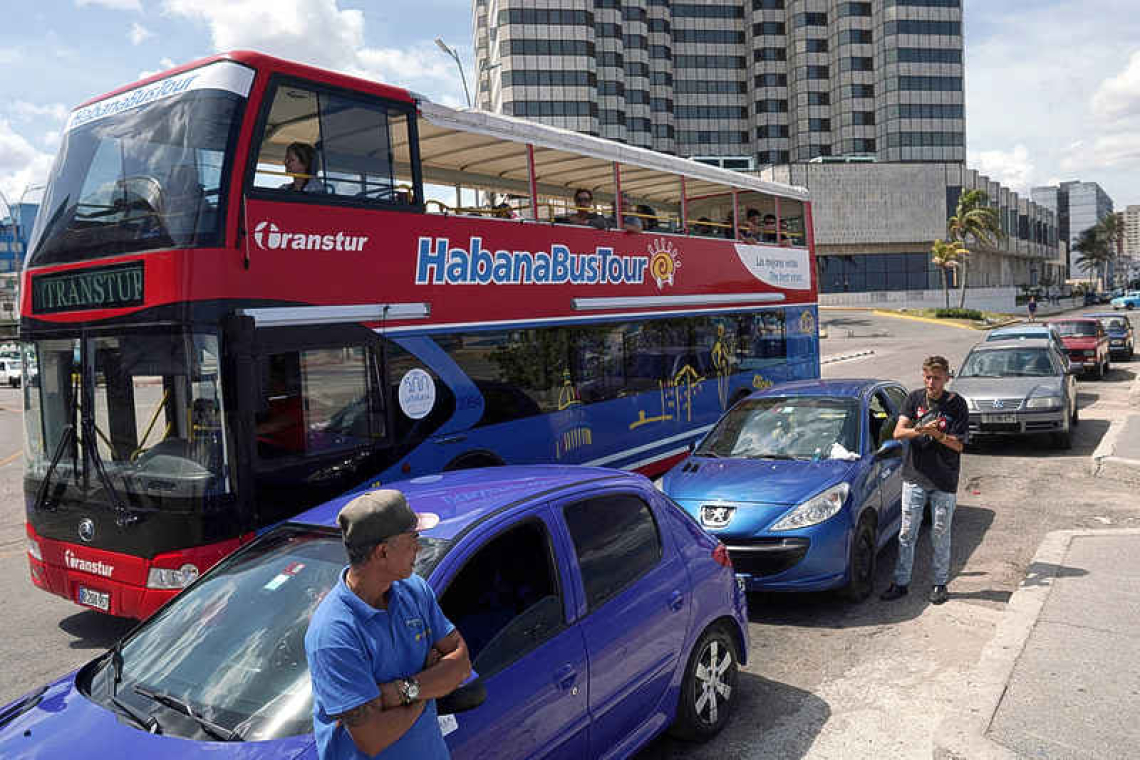State worker Yuri Yon (L), talks to a colleague during their third day waiting in line for the arrival of a fuel tank truck in Havana, Cuba, April 5, 2023.
HAVANA, Cuba--Lines for fuel in Cuba’s capital Havana snaked for blocks on Wednesday as frustrated citizens waited for hours, and in some cases days, to fill their tanks, the latest chapter in a growing economic crisis that is rattling the Caribbean island nation.
Public transportation, tourists and taxi drivers have all suffered in recent months as the shortages have grown increasingly acute, raising tensions in the country’s most populous city.
“I’ve been three days waiting in this line for gasoline and we still don’t know if the fuel truck will arrive today,” said private taxi driver Alexander Pérez (43). “The situation across the country is critical and the lines endless, and they don’t give any explanation.”
The reason for the shortfall, among the worst in months, if not the past year, remains unclear.
A report in state-run newspaper Granma on Sunday that addressed the issue is no longer available on the paper’s website. An unofficial copy of that report, republished in various independent media and seen by Reuters, acknowledges the supply issue and describes a new programme temporarily prioritising public transportation.
The Cuban government did not immediately reply to a request for comment on the shortages.
Venezuela has ramped up oil supply to Cuba since early 2023, according to documents from state company PDVSA and shipping data. In January, it sent some 40,000 barrels per day (bpd). That rose to 52,000 bpd in February shipments and 76,000 bpd in March.
The latest supply included the supertanker Nolan, which arrived around mid-March near Antilla, according to a satellite picture obtained by TankerTrackers.com, carrying 1.53 million barrels of Venezuelan crude and fuel oil.
But Venezuela’s supply in recent months has barely included clean refined products, especially gasoline and diesel, according to the documents and data.
Those fuels are the most coveted by drivers on the island, said Jorge Piñon, a professor and energy policy expert at the University of Texas at Austin.
“There doesn’t appear to have been a decline in imports,” Piñon said. “The problem...seems to be related this time with insufficient production in domestic refineries, which creates a greater need for imported gasoline and diesel that Venezuela cannot satisfy.” ~ Reuters ~







